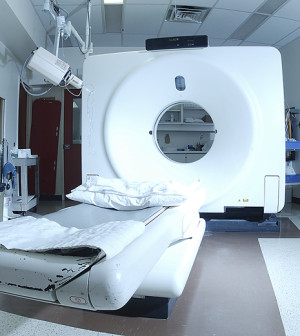- Could Your Grocery Store Meat Be Causing Recurring UTIs?
- Are You Making This Expensive Thermostat Error This Winter?
- Recognizing the Signs of Hypothyroidism
- 10 Strategies to Overcome Insomnia
- Could Artificial Sweeteners Be Aging the Brain Faster?
- Techniques for Soothing Your Nervous System
- Does the Water in Your House Smell Funny? Here’s Why
- Can a Daily Dose of Apple Cider Vinegar Actually Aid Weight Loss?
- 6 Health Beverages That Can Actually Spike Your Blood Sugar
- Treatment Options for Social Anxiety Disorder
Nuplazid Approved for Parkinson’s Hallucinations

Nuplazid (pimavanserin) has been approved by the U.S. Food and Drug Administration to treat hallucinations and delusions associated with Parkinson’s disease.
As many as half of people with Parkinson’s may have psychosis that lead to hallucinations and delusions, the agency said in a news release announcing the approval. This can lead to behaviors including difficulty associating with loved ones or the inability to take care of oneself.
Some 50,000 Americans are diagnosed annually with Parkinson’s, the FDA noted, and the total number of affected Americans is about 1 million.
The neurological disorder typically affects people 60 and older, and is triggered when cells that are supposed to produce a brain chemical called dopamine become impaired or die.
Dopamine helps transmit neurologic signals that lead to smooth, “purposeful” movement, the FDA said, during activities such as writing, shaving and walking. The speed at which Parkinson’s affects the body and brain varies from person to person.
Progression of the disease includes development of shaking (tremor) in most people. Other common symptoms include hallucinations, delusions, depression, sleep disruptions and difficulty swallowing, chewing and speaking.
Nuplazid was evaluated in clinical studies involving 199 people. The most common side effects included swelling of the ankles, legs and feet, nausea and confusion.
The drug, as with others in its class called atypical antipsychotics, includes a boxed label warning of an increased risk of death among older people with dementia-related psychosis. Atypical antipsychotics are not approved to treat dementia-related psychosis, the FDA stressed.
Nuplazid is marketed by San Diego-based Acadia Pharmaceuticals.
More information
Visit the FDA to learn more about this approval.
Source: HealthDay
Copyright © 2026 HealthDay. All rights reserved.










